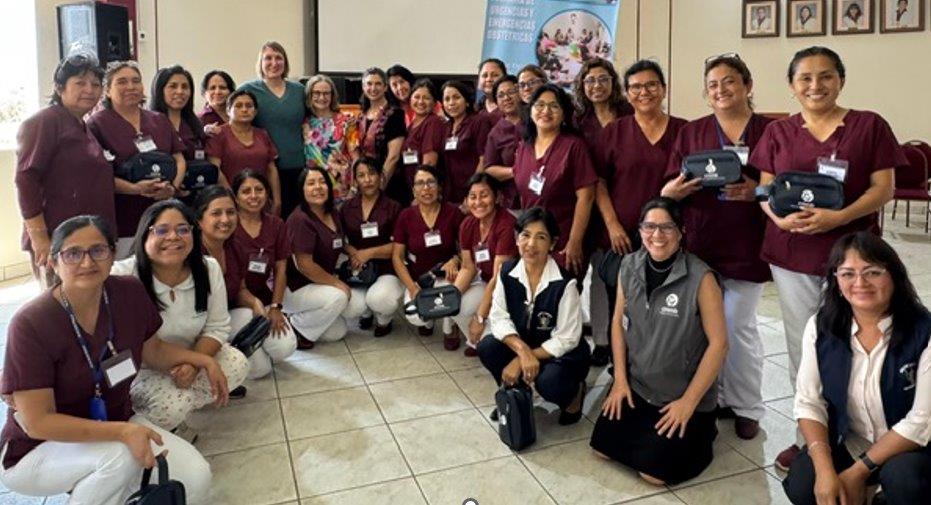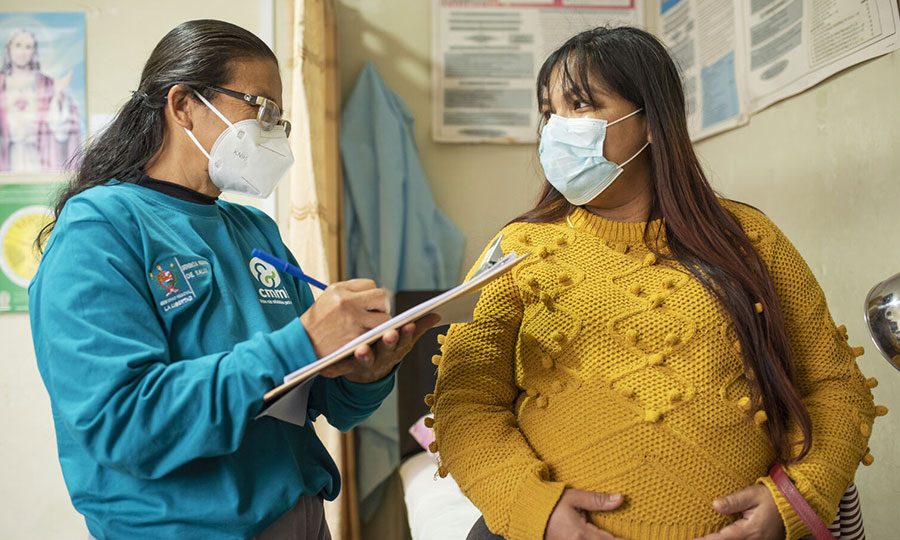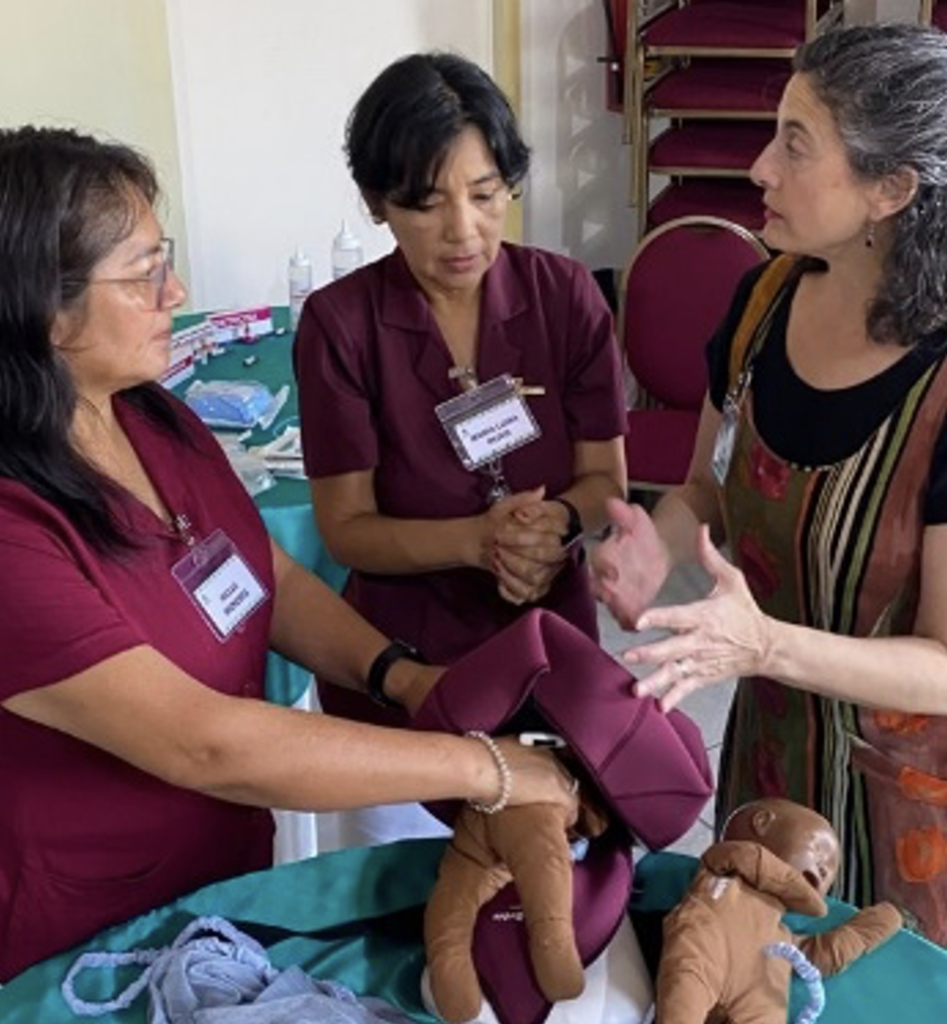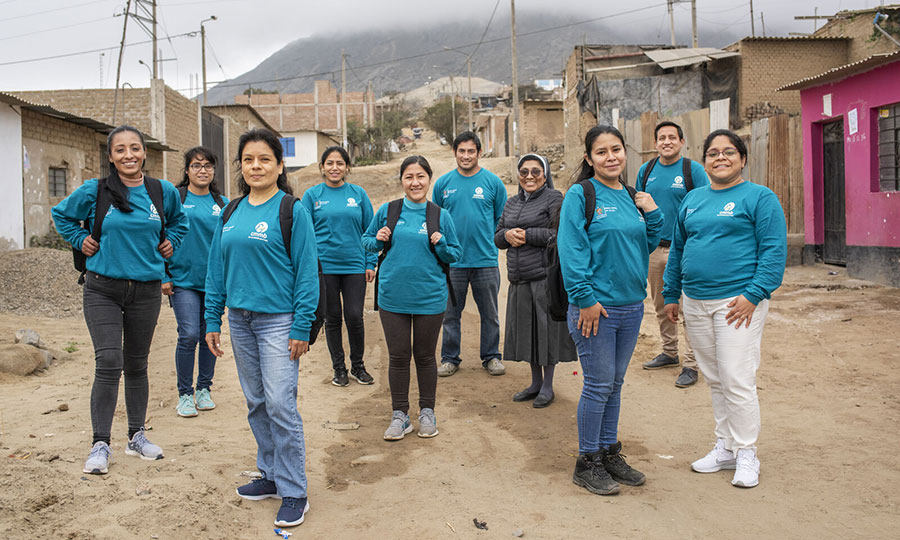Strengthening Maternal Health in Partnership with Providence Health in Peru

In Peru, where maternal mortality rates remain alarmingly high, access to emergency obstetric care can mean the difference between life and death. To help address this critical challenge, CMMB partnered with Providence Health on a high-impact volunteer initiative aimed at strengthening care for women during childbirth. Through a combination of hands-on training, virtual sessions, and ongoing global collaboration, healthcare workers in two regions gained the skills they need to better respond to obstetric emergencies, delivering healthier outcomes for mothers and newborns.
The Challenge: Preventable Complications, Persistent Barriers
An estimated 80% of maternal deaths in Peru occur in just 12 departments. Hemorrhage and hypertensive disorders remain the leading causes—conditions that are largely preventable or treatable with timely, skilled care. But frontline health workers, particularly in under-resourced areas, often lack access to the training needed to effectively and confidently manage these emergencies. Other complicated deliveries requiring breech, shoulder, and circular birth care can be managed by health workers with the proper training and resources. When risks are not identified early or decisions to intervene are made too late, precious lives are lost. Preparing health workers to confidently support patients during these scenarios was a key focus of this project.
The Solution: A Volunteer Partnership in Action
From October 2024 to January 2025, CMMB and Providence Health implemented a targeted training program for healthcare providers in Huancayo and Trujillo, Peru. Three OBGYN physicians from Providence Health dedicated 350 service hours to this initiative.
Key components of the partnership included:
- A hybrid model combining virtual theoretical sessions with in-person simulation workshops
- Collaboration between U.S. and Peruvian-based medical professionals
- Use of simulations with mannequins, scenario-based exercises, and structured evaluations to reinforce learning
- Partnership with local health facilities, the College of Obstetrics of Peru, and Red de Salud (the government-managed health network) to ensure local ownership
- Thanks to funding from Providence, the project covered not only travel and lodging for volunteers, but also the purchase of critically needed training materials and equipment to utilize during the scope of this project and well into the future.
The Results: Building Skills, Saving Lives
Over the course of the program:
- 50+ healthcare workers were trained across two regions
- Participants reported increased confidence in handling high-risk deliveries
- Pre- and post-training assessments showed measurable gains in knowledge and skills
- The training model was designed for replication and expansion, building toward long-term sustainability
Lessons Learned
Every project brings new insight. For this initiative, CMMB learned that:
- Hybrid training is both practical and effective service format for busy professionals
- Cross-cultural teams foster dynamic learning and mutual respect
- Planning for logistical challenges—such as time constraints and language barriers—is key to maximizing impact
What’s Next: Scaling the Model
Thanks to positive results and continued support from Providence, a second round of training will take place in 2026. CMMB is now exploring ways to scale this model in other high-need areas—both in Peru and across our global programs.
Partnering for Greater Impact
Volunteer partnerships like this one help CMMB expand our reach and build stronger, more resilient health systems in areas where specialized medical professionals are a scarce resource. When organizations lend their time, talent, and resources, they become vital partners that pave the way for sustainable and systematic changes—all leading to better health outcomes for the most vulnerable.
Interested in partnering with us? Learn more about CMMB’s volunteer program or partnerships opportunities here.


